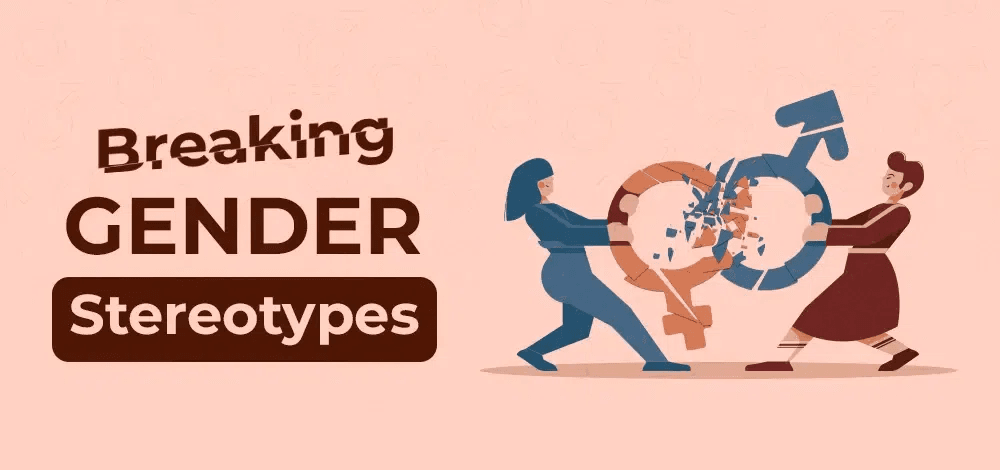Breaking Gender Stereotypes Through Progressive Education in India’s Schools
In today’s rapidly evolving society, the need to challenge and break traditional gender stereotypes has never been greater. Schools, as foundational spaces for learning and growth, play a crucial role in shaping young minds and fostering a more equitable world. Progressive education in India, especially in CBSE schools, is rising to this challenge by emphasizing inclusivity, critical thinking, and the dismantling of age-old biases.
In this article, we’ll explore how CBSE schools in India, including some of the top CBSE schools, are using progressive education to break gender stereotypes and create an environment where every child, regardless of gender, can thrive.
What Is Progressive Education?
Progressive education is an approach to teaching that focuses on the holistic development of students. It emphasizes critical thinking, creativity, and experiential learning over rote memorization. This method not only nurtures academic excellence but also fosters emotional intelligence, inclusivity, and social awareness.
Key Principles of Progressive Education:
Student-Centric Learning: Prioritizes individual strengths, interests, and goals.
Real-World Relevance: Links classroom learning to real-life challenges and solutions.
Inclusivity and Equality: Promotes acceptance and respect for diversity.
Collaborative Environment: Encourages teamwork and mutual understanding.
This educational model, implemented in many CBSE schools in India, is instrumental in breaking traditional gender stereotypes by challenging outdated norms and promoting equality.
Why Breaking Gender Stereotypes Is Crucial in Schools
Gender stereotypes are societal expectations about how boys and girls should behave, think, and pursue their goals. These stereotypes often limit students' potential, confining them to predefined roles. Schools, as microcosms of society, must actively dismantle these biases to foster a culture of equality.
Why It Matters:
Empowers All Genders: Provides equal opportunities for boys, girls, and non-binary students to excel.
Encourages Diverse Career Choices: Breaks traditional career norms, inspiring students to pursue paths beyond gendered expectations.
Fosters Healthy Relationships: Promotes mutual respect, understanding, and collaboration among students.
Builds a Fair Society: Instills values of equality and justice in the next generation.
By incorporating progressive education, CBSE schools in India are actively contributing to a societal shift, empowering students to challenge and transcend these barriers.
How CBSE Schools in India Are Breaking Gender Stereotypes
India’s top CBSE schools are using innovative and inclusive methods to break down gender barriers and create an equitable learning environment.
1. Inclusive Curriculum
- Schools are integrating gender studies, human rights, and equality topics into their syllabus.
- Textbooks and materials are being revised to include examples of women, men, and non-binary individuals excelling in diverse roles.
2. Encouraging Diverse Extracurriculars
- Breaking traditional norms, boys are encouraged to explore arts, cooking, or dance, while girls are motivated to take up sports, coding, and robotics.
- Mixed-gender sports teams and activities foster collaboration and mutual respect.
3. Gender-Neutral Policies
- Uniforms, facilities, and participation rules are becoming more gender-neutral, ensuring no student feels excluded.
- Anti-discrimination policies reinforce an inclusive environment.
4. Role Models and Mentorship Programs
- Schools invite guest speakers and alumni from diverse genders and careers to inspire students.
- Teachers and mentors consciously promote non-gendered language and practices in classrooms.
5. Gender Sensitization Workshops
- Regular workshops for students, teachers, and parents create awareness about stereotypes and their impact.
- Role-playing activities and open discussions allow students to question biases and develop empathy.
These efforts by CBSE schools in India are proving that education can indeed be a powerful tool for societal change.
Success Stories: Breaking Gender Stereotypes in India’s Schools
1. Girls Excelling in STEM Fields
Many top CBSE schools in India are celebrating success stories of female students excelling in traditionally male-dominated fields like robotics, coding, and engineering. These examples inspire younger students to pursue careers in STEM without hesitation.
2. Boys in Performing Arts
Breaking societal norms, boys from progressive schools are actively participating in dance, drama, and fine arts, winning accolades at national and international levels.
3. Mixed-Gender Leadership Roles
Student councils in CBSE schools are increasingly diverse, with boys and girls sharing leadership roles and decision-making responsibilities.
4. Empowering Non-Binary Students
Several schools have implemented policies to support non-binary students, from introducing gender-neutral bathrooms to creating safe spaces for self-expression.
These success stories highlight the tangible impact of progressive education in shaping an inclusive future.
Benefits of Progressive Education in Breaking Gender Stereotypes
For Students:
Builds self-confidence, allowing students to pursue their interests without fear of judgment.
Encourages critical thinking, helping them challenge societal norms.
Develops empathy and teamwork through diverse interactions.
For Schools:
Creates a positive, inclusive, and forward-thinking school culture.
Improves academic outcomes by focusing on holistic development.
Attracts progressive-minded parents and educators, further strengthening the institution’s values.
For Society:
Nurtures individuals who advocate for equality and justice in their personal and professional lives.
Reduces gender disparity in various fields and careers.
The ripple effect of these benefits underscores why progressive education in India’s best CBSE schools is a game-changer.
How Parents and Teachers Can Support This Shift
Teachers’ Role:
- Use gender-neutral language and examples in the classroom.
- Celebrate diverse achievements, avoiding stereotypes about what boys or girls "should" excel in.
- Encourage collaborative projects that involve mixed-gender teams.
Parents’ Role:
- Avoid reinforcing stereotypes at home (e.g., “boys don’t cry” or “girls should cook”).
- Expose children to diverse role models across genders.
- Support their child’s interests and career choices, irrespective of societal expectations.
When parents and teachers work together, the impact of progressive education multiplies, fostering an environment where all students can thrive.
Challenges to Breaking Gender Stereotypes in Schools
While progress is being made, there are still challenges to address:
Cultural Resistance: Deep-rooted societal beliefs may hinder acceptance of progressive practices.
Lack of Awareness: Some parents and educators may not fully understand the importance of breaking gender stereotypes.
Resource Constraints: Not all schools have the resources to implement progressive programs effectively.
Despite these obstacles, CBSE schools in India continue to lead the way, proving that change is possible with the right mindset and efforts.
The Future of Progressive Education in India
As more schools adopt progressive practices, the future looks promising for gender equality in education.
What’s Next?
- Expanded teacher training programs on gender sensitivity.
- Collaboration with global organizations to implement best practices.
- Increasing representation of all genders in leadership positions within schools.
- Development of more inclusive curriculums that challenge traditional norms.
- The journey toward breaking gender stereotypes is ongoing, but with the commitment of top CBSE schools in India, significant progress is being made.
FAQs
1. What is progressive education, and how does it challenge gender stereotypes?
Ans - Progressive education emphasizes inclusivity, critical thinking, and real-world relevance, encouraging students to challenge traditional gender norms and embrace equality.
2. How are CBSE schools in India promoting gender equality?
Ans - CBSE schools are adopting inclusive curriculums, gender-neutral policies, and sensitization programs to promote equality and dismantle stereotypes.
3. Why is breaking gender stereotypes important in schools?
Ans - It empowers all students to explore their interests freely, fosters mutual respect, and prepares them for a more equitable society.
4. Can progressive education impact career choices?
Ans - Yes, it encourages students to pursue careers based on passion and skills rather than societal expectations tied to gender.
5. What role do parents play in breaking gender stereotypes?
Ans - Parents can support this effort by avoiding stereotypical expectations at home and encouraging their children’s unique interests and ambitions.
6. What are the future trends in progressive education?
Ans - Schools are likely to adopt more inclusive curriculums, integrate advanced gender-sensitivity training, and collaborate with global organizations for equitable education practices.
Conclusion
Progressive education is transforming India’s CBSE schools, creating an inclusive environment where gender stereotypes are actively challenged and dismantled. By fostering equality, diversity, and critical thinking, these schools are equipping students to build a more just and balanced society.
Parents seeking the best CBSE schools in India should prioritize institutions that champion progressive education, ensuring their children receive not only academic excellence but also the values needed to thrive in an inclusive world.

